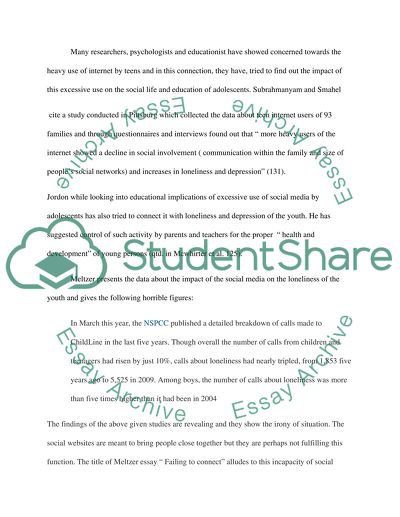Cite this document
(“Social Media and Loneliness Essay Example | Topics and Well Written Essays - 1500 words”, n.d.)
Retrieved from https://studentshare.org/english/1631036-social-media-and-loneliness
Retrieved from https://studentshare.org/english/1631036-social-media-and-loneliness
(Social Media and Loneliness Essay Example | Topics and Well Written Essays - 1500 Words)
https://studentshare.org/english/1631036-social-media-and-loneliness.
https://studentshare.org/english/1631036-social-media-and-loneliness.
“Social Media and Loneliness Essay Example | Topics and Well Written Essays - 1500 Words”, n.d. https://studentshare.org/english/1631036-social-media-and-loneliness.


